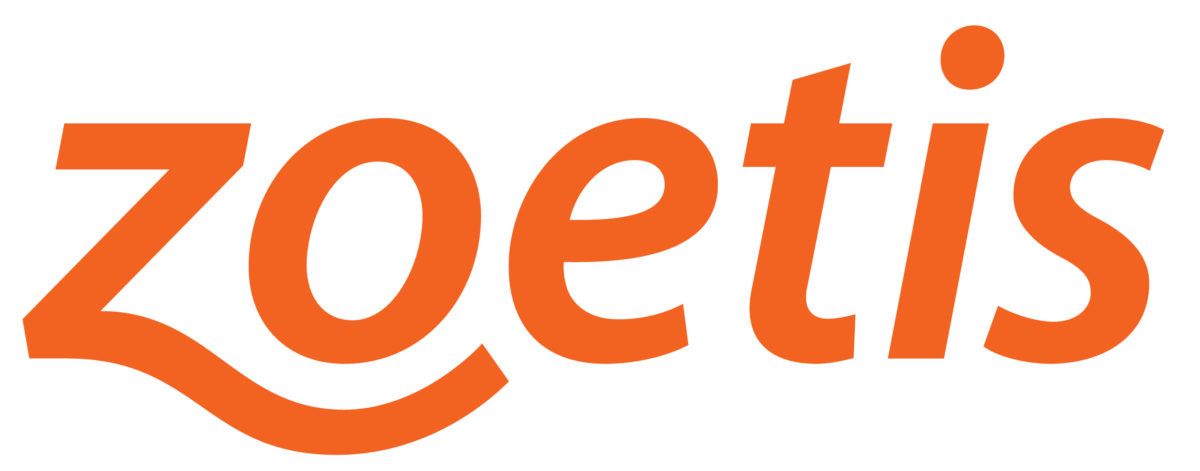International Organizations
International Association for Paratuberculosis
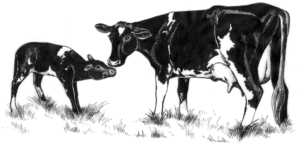 An organization of scientists, animal owners and consumers dedicated to advancing and disseminating knowledge about MAP. The organization meets every two years in various international locations. The 2020 meeting (15th International Colloquium on Paratuberculosis, 15-ICP) will be in Dublin. The 16-ICP will be held at Amity University Rajasthan, Jaipur, India in October 2022. Visit the IAP web site and consider becoming a member.
An organization of scientists, animal owners and consumers dedicated to advancing and disseminating knowledge about MAP. The organization meets every two years in various international locations. The 2020 meeting (15th International Colloquium on Paratuberculosis, 15-ICP) will be in Dublin. The 16-ICP will be held at Amity University Rajasthan, Jaipur, India in October 2022. Visit the IAP web site and consider becoming a member.
Human Para Foundation
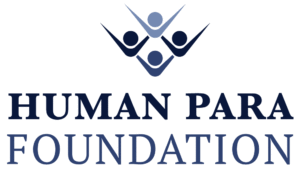 Human Paratuberculosis Foundation, Inc. is a non-profit organization founded in 2016. We are a IRS 501(c)(3) non-profit organization. Managed by a dedicated group of volunteers, the Human Paratuberculosis Foundation (HPF) is committed to providing patients and health care professionals information about the role of Mycobacterium avium subspecies paratuberculosis (MAP) in immune conditions, and sponsoring innovative human MAP research studies. The HPF has an extensive website and it particularly useful for patients with any of the several diseases associated with MAP.
Human Paratuberculosis Foundation, Inc. is a non-profit organization founded in 2016. We are a IRS 501(c)(3) non-profit organization. Managed by a dedicated group of volunteers, the Human Paratuberculosis Foundation (HPF) is committed to providing patients and health care professionals information about the role of Mycobacterium avium subspecies paratuberculosis (MAP) in immune conditions, and sponsoring innovative human MAP research studies. The HPF has an extensive website and it particularly useful for patients with any of the several diseases associated with MAP.
World Organization for Animal Health (O.I.E)
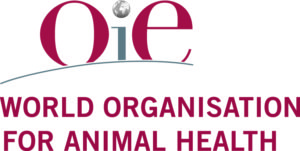 The OIE is the main international organization concerned with infectious diseases of animals. Their stated objectives are to provide transparency regarding animal health internationally, to safeguard animal health in world trade, and to provide a resource of experts and publications on animal diseases.
The OIE is the main international organization concerned with infectious diseases of animals. Their stated objectives are to provide transparency regarding animal health internationally, to safeguard animal health in world trade, and to provide a resource of experts and publications on animal diseases.

Description of Johne’s disease in Arabic as posted in Arabic Wikipedia by Dr. Ahmed M. Alluwiami, Professor of Immunology and Director of the Saudi Veterinary Medical Society. In addition to the basics, this site offers information about Johne’s disease in camels.
National Programs
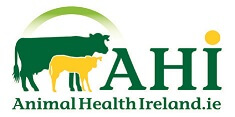 Ireland has one of the newest national paratuberculosis programs. There extensive website has a wealth of information and is likely to expand as the Irish program advances. Johne’s disease is one of several diseases covered in this program to improve animal health and product safety.
Ireland has one of the newest national paratuberculosis programs. There extensive website has a wealth of information and is likely to expand as the Irish program advances. Johne’s disease is one of several diseases covered in this program to improve animal health and product safety.
 The UK program, called the National Action Group on Johne’s, is in Phase II of the National Johne’s Management Plan (NJMP) which seeks to manage and reduce the incidence of Johne’s disease on farms through implementing one of the six strategies agreed by the NJMP group, and monitored on each farm by accredited vets. Click here for more details.
The UK program, called the National Action Group on Johne’s, is in Phase II of the National Johne’s Management Plan (NJMP) which seeks to manage and reduce the incidence of Johne’s disease on farms through implementing one of the six strategies agreed by the NJMP group, and monitored on each farm by accredited vets. Click here for more details.
 Australian Johne’s disease programs are under the umbrella of “Market Assurance Programs”. Separate programs exist for cattle, sheep, goats, and alpaca. This extensive website is a wealth of information.
Australian Johne’s disease programs are under the umbrella of “Market Assurance Programs”. Separate programs exist for cattle, sheep, goats, and alpaca. This extensive website is a wealth of information.
New Zealand struggles with Johne’s disease in sheep, dairy cattle and red deer. These links have extensive amounts of information specific to their situation.
 New Zealand. Johne’s Disease Research Consortium and Advisory Group
New Zealand. Johne’s Disease Research Consortium and Advisory Group
 In Canada, the province of Ontario has had the most well developed program. Called the Johne’s Education, Management and Assistance Program, these Canadians tried several novel approaches and 52% of dairy herds participated. There are many useful documents and novel educational materials on their site, including herd Risk Assessment Management Plans (RAMPs) in both English and French.
In Canada, the province of Ontario has had the most well developed program. Called the Johne’s Education, Management and Assistance Program, these Canadians tried several novel approaches and 52% of dairy herds participated. There are many useful documents and novel educational materials on their site, including herd Risk Assessment Management Plans (RAMPs) in both English and French.
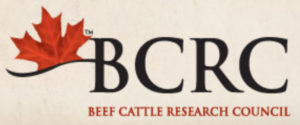 Canadian beef cattle producers have created a very useful website with many helpful fact sheets readily accessible to producers. This organization aims to further research specific to the beef industry will better enable producers to develop effective and efficient control programs and reduce any negative impacts MAP has on affected farms and on the entire industry.
Canadian beef cattle producers have created a very useful website with many helpful fact sheets readily accessible to producers. This organization aims to further research specific to the beef industry will better enable producers to develop effective and efficient control programs and reduce any negative impacts MAP has on affected farms and on the entire industry.
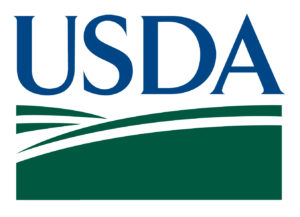 In the U.S., the USDA manages a website providing general information about Johne’s disease. The site provides a very useful table that outlines options (in order of decreasing risk) of buying MAP-infected animals.
In the U.S., the USDA manages a website providing general information about Johne’s disease. The site provides a very useful table that outlines options (in order of decreasing risk) of buying MAP-infected animals.
They also have a site describing the U.S. Voluntary Bovine Johne’s Disease Control Program.
A third site lists APHIS-approved laboratories that have taken and passed the proficiency test for each of the various types of diagnostic assays for Johne’s disease.
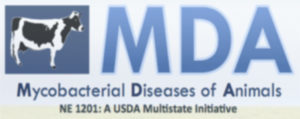 The Mycobacterial Diseases of Animals (MDA) multi-state initiative (NE1201) in the U.S. brings together leading scientists with a shared vision of improving food security through a reduction in losses from two of the most important diseases of livestock – bovine tuberculosis (bTB) and Johne’s disease (JD).
The Mycobacterial Diseases of Animals (MDA) multi-state initiative (NE1201) in the U.S. brings together leading scientists with a shared vision of improving food security through a reduction in losses from two of the most important diseases of livestock – bovine tuberculosis (bTB) and Johne’s disease (JD).
Their mission is to facilitate the development of shared research as well as the leveraging of intellectual and physical resources to address the most pressing needs and reduce health impacts and economic losses from bTB and JD.

